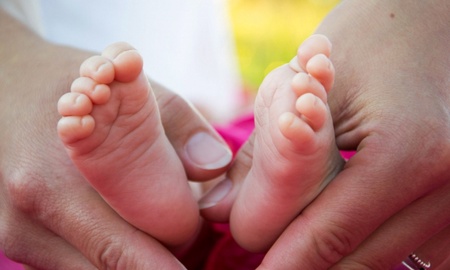Repeat caesarean sections don't lead to substantially worse long-term health in children compared with vaginal births after caesarean section, according to new research.
Researchers at the University of Aberdeen studied all second births between 1993 and 2007 of children to mothers in Scotland who had previously had a first child born by caesarean section(CS).
The research, published in this week’s PLOS Medicine, is thought to be the first long-term study of birth after repeat caesarean section.
Using available health records, researchers categorised these births into scheduled repeat CS (assumed to be planned) (44.6%), unscheduled repeat CS (22.1%), and vaginal births after caesarean (VBAC) (33.3%).
They then looked for links between type of birth and several health outcomes in children, including obesity at age five years, hospitalisation with asthma, prescription of a salbutamol inhaler (an asthma medication) at age five, hospitalisation with irritable bowel disease, type 1 diabetes, learning disability, cerebral palsy, cancer, and death.
The only consistent difference the researchers found between repeat CS (both scheduled or unscheduled) and VBAC was a slightly higher risk of hospitalisation with asthma in children born by CS. They felt this was not clinically significant, especially as there was no difference in the rate of salbutamol inhaler prescription. They also observed that learning disability and death were more common following unscheduled CS but not scheduled CS compared with VBAC. These risks are likely to be related to the reason for performing the CS, which may include complications arising in labour, or problems with the baby which are detected before labour starts.
While findings here suggest that there are no substantially worse outcomes associated with planned repeat CS births, it is not known whether the births analysed in this study were initially planned to be vaginal or CS. The researchers assumed an intended CS was one that was scheduled ahead of time and performed on the scheduled date, and all other CS were categorized as unplanned and likely represent a mix of emergency CS ahead of a planned CS, and emergency CS after complications during a planned vaginal birth.
Lead author, Dr Mairead Black, a clinical lecturer at the University of Aberdeen, said: “The lack of data on intended (rather than actual) mode of birth limits the direct application of these study findings to clinical practice, but women may be somewhat reassured by the apparent lack of risk to long-term offspring health following planned repeat CS specifically. This study may therefore support the process of planning birth after CS in a way that reflects women’s values and preferences.”


